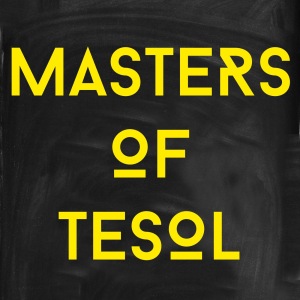classroom interaction
22 – Online Learning Past and Future – Stafford Lumsden
{bleep bloop bleep} I booted up cyborg teacher Stafford Lumsden to talk about online learning and the changing perception of what exactly a classroom is. We are more connected than ever and this shift in technology is changing the options that students have and how we teach. We discuss….
- distance learning
- e-learning vs online learning
- Is online education as ‘good’ as offline?
- Basics of having a repository
- LMS – Learning Management System – create assignments, give feedback, students upload and interact with each other and the instructor
- The pros and cons of a fully online classroom
- No one-size-fits-all with online teaching
Useful resources:
Google – heard of it? add dot com. It’s quite good.
Google Sites – make your own web pages
classroom.google.com – education specific ‘classrooms’. Students can submit and track assignments. Teachers can receive and give feedback on assignments all within the Google eco-system.
wix.com – make your own web pages
moodle.org – open source LMS. Requires some computer savvy to use
Blackboard.com – pricy. Would require financial support from your department
Involving Every Student – Classroom hacks
An easy way to make sure that every student contributes to class. This video shows an easy way to mentally track who has spoken in class. Basic, but useful!
Activities for Teaching English Pronunciation – more than Listen and Repeat
Includes thrilling details on the two different parts of pronunciation, and activities like minimal pairs bingo, the need for volume in pronunciation / mouth vowel map, using textbook dialogues better / changing the mood not the words (my personal favourite), stress and meaning activity, and 2 truths 1 lie with intonation!
Recorded at my KOTESOL presentation in 2018, I give some ideas for activities to teach English pronunciation.
Students’ Thinking Skills – Bloom’s Taxonomy – a simple explanation
Language is more than just memorising vocab and comprehension questions. Students need a range of thinking skills. This video helps with the WHAT, HOW, and WHY of doing more with our activities.
21.5 – Thinking Skills – VIDEO!
I am branching out into video.
Please watch, subscribe, like and all those things that everyone on YouTube is begging you to do! This is the first step of an expansion of MOT with the aim of eventually making materials for you to use in your own classes.
Please smash “subscribe”, pummel “like” and all that other YouTube stuff.
First Video – https://youtu.be/FWE2JPBf-PI
Channel – http://www.youtube.com/channel/UCKbariMdEytYHdmkpXiILnQ/
Keywords: Bloom, Thinking Skills, Bloom’s Taxonomy, ESL, EFL, TESOL, TEFL, CELTA, DELTA, linguistics, language, second language, teaching, learning, English, bilingual, multilingual, cognition,
19 – Reflective Practice – Thomas Farrell
The self-styled ‘bad boy’ of language teaching, Thomas Farrell, dropped by my office to take about self reflection. What do we do in the classroom and, importantly, WHY do we do it? Who are YOU as a teacher and what do YOU bring into the classroom?
Start adding this reflective practice regularly to your professional life and you’ll be surprised at the difference it can make to your personal and professional development.
Also a good lesson about having a safety net. I recorded this with my fancy MICs but the recordings failed for some reason, so this is based on my phone back-up recording. Phew….
16 – Eytan Zweig – what words really mean – semantics and pragmatics
Plurals are easy, right? There’s one or there’s more than one… pretty straight forward. “All”, “every”, “All the” “each” – that’s pretty simple too, isn’t it? Well, hold on to something sturdy as Eytan Zweig gets you to think a little deeper about how we both form and understand language.
The literal meaning (semantics) and the meaning of the use (pragmatics) of the language is a vital part of how we communicate in real life. So, let’s a show like this is chomping at the bit to dig down into this topic.
Keywords: ESL, EFL, TESOL, TEFL, CELTA, DELTA, pragmatics, semantics, linguistics, language, second language, teaching, learning, English, Israeli, Hebrew, bilingual, mulitlingual, York, University of York, UK, England, cognition, Eytan Zweig,
15 – The Student Becomes The Teacher – Justin McKibben

In the first of this batch of hit-n-run quickie interviews from the KOTESOL conference in Seoul at the end of 2016, I spoke to Justin McKibben about how we can expand students roles. By giving students certain speaking tasks the traditional classroom would consider a teacher’s job, we can vastly increase student talk time and give them a broader sense of control in their own classroom.
Justin takes us through some of the techniques we can use in our classrooms to shift away from the traditional teacher-fronted classroom. You can start using these techniques immediately.
STT, TTT, ESL, EFL, TEFL, TESOL, CELTA, DELTA, teacher-fronted classroom, teaching, English,
14 – MOT Listeners’ Tales from the classroom
In this end-of-year episode, we get the funnier side of teaching English with stories from listeners and future interviewees. Special thanks to Grace, Thomas, Matthew, Jon, Fergal, James, Mierkamil, Oksana, Jacob, Roger, Gordon, and Jake.
We cover accidental phallic drawings, mistranslations, unintended puns, uncontrollable sweating…
If you have a good story, you can be part of a future episode. Record it and send it to mastersoftesol@gmail.com .
IG: mastersoftesol
Twitter: @MOTcast
Cool people subscribe on:
Google Play
https://play.google.com/music/m/Ithao3qppoidll3hfgekmbusswi?t=Masters_of_TESOL
iTunes
https://itunes.apple.com/gb/podcast/masters-of-tesol/id933226826?mt=2
EFL, ESL, English Teaching, TESOL, TEFL, CELTA, EIL,


